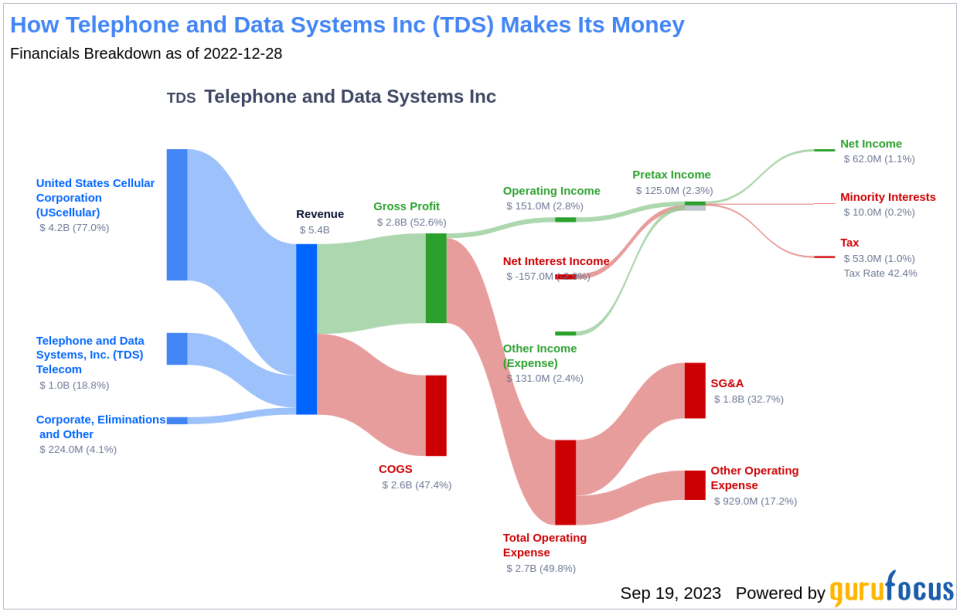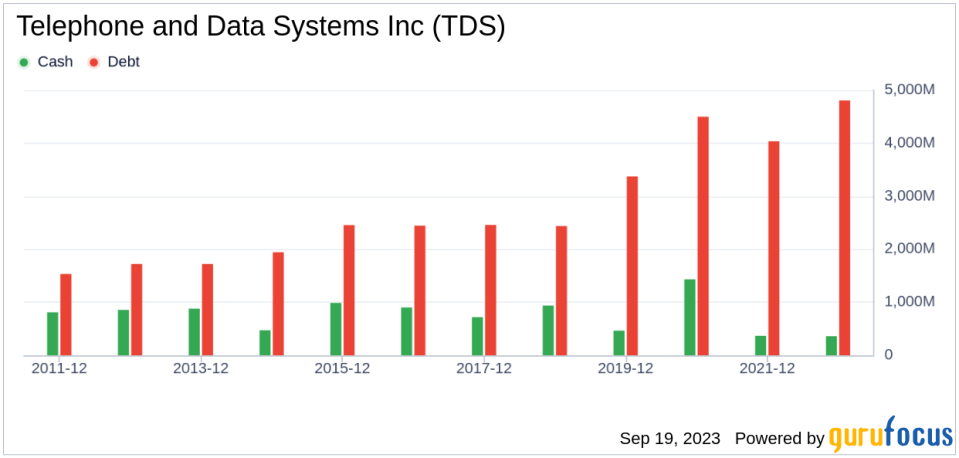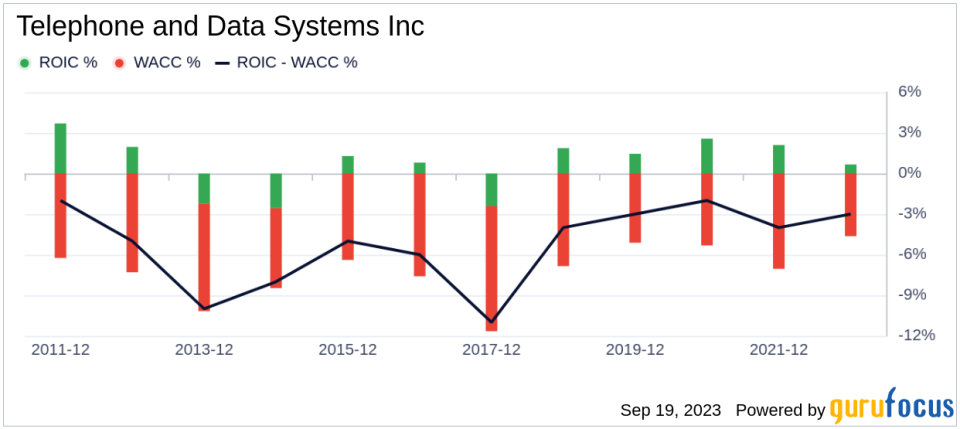Unveiling Telephone and Data Systems (TDS)'s Value: Is It Really Priced Right? A Comprehensive Guide
The stock of Telephone and Data Systems Inc (NYSE:TDS) experienced a daily gain of 3.2% and a notable 3-month gain of 135.68%. However, it reported a Loss Per Share of 0.85. This raises an important question: is the stock fairly valued? In this article, we dive into a comprehensive valuation analysis of TDS. So, sit tight and read on to find out more about this intriguing financial journey.
Introduction to Telephone and Data Systems
Telephone and Data Systems Inc is a diversified telecommunications operator providing mobile, telephone, and broadband services. The company's segments include UScellular and TDS Telecom, with the majority of its revenue generated from the UScellular segment. With a stock price of $17.73 and a market cap of $2 billion, the company's GF Value stands at $19.11, indicating that the stock is fairly valued.
Understanding the GF Value
The GF Value represents the current intrinsic value of a stock derived from our exclusive method. The GF Value Line on our summary page gives an overview of the fair value that the stock should be traded at. It is calculated based on three factors:
Historical multiples (PE Ratio, PS Ratio, PB Ratio, and Price-to-Free-Cash-Flow) that the stock has traded at.
GuruFocus adjustment factor based on the company's past returns and growth.
Future estimates of the business performance.
At its current price of $17.73 per share, Telephone and Data Systems has a market cap of $2 billion and the stock shows every sign of being fairly valued. Because Telephone and Data Systems is fairly valued, the long-term return of its stock is likely to be close to the rate of its business growth.
Assessing TDS's Financial Strength
Companies with poor financial strength offer investors a high risk of permanent capital loss. To avoid this, an investor must review a company's financial strength before deciding to purchase shares. Both the cash-to-debt ratio and interest coverage of a company are a great way to understand its financial strength. TDS has a cash-to-debt ratio of 0.05, which ranks worse than 85.93% of 391 companies in the Telecommunication Services industry. The overall financial strength of TDS is 4 out of 10, indicating that its financial strength is poor.
Evaluating Profitability and Growth
Investing in profitable companies carries less risk, especially in companies that have demonstrated consistent profitability over the long term. TDS has been profitable 9 years over the past 10 years. During the past 12 months, the company had revenues of $5.30 billion and a Loss Per Share of $0.85. Its operating margin of 1.13% is worse than 75.65% of 386 companies in the Telecommunication Services industry.
Growth is probably the most important factor in the valuation of a company. The faster a company is growing, the more likely it is to be creating value for shareholders, especially if the growth is profitable. The 3-year average annual revenue growth rate of TDS is 2.1%, which ranks worse than 54.62% of 379 companies in the Telecommunication Services industry. The 3-year average EBITDA growth rate is -1.5%, which ranks worse than 69.25% of 335 companies in the Telecommunication Services industry.
ROIC vs WACC
Another way to evaluate a company's profitability is to compare its return on invested capital (ROIC) to its weighted cost of capital (WACC). Return on invested capital (ROIC) measures how well a company generates cash flow relative to the capital it has invested in its business. The weighted average cost of capital (WACC) is the rate that a company is expected to pay on average to all its security holders to finance its assets. If the ROIC is higher than the WACC, it indicates that the company is creating value for shareholders. Over the past 12 months, TDS's ROIC was 1.08, while its WACC came in at 4.33.
Conclusion
In summary, the stock of Telephone and Data Systems (NYSE:TDS) shows every sign of being fairly valued. The company's financial condition is poor and its profitability is fair. Its growth ranks worse than 69.25% of 335 companies in the Telecommunication Services industry. To learn more about TDS stock, you can check out its 30-Year Financials here.
To find out the high-quality companies that may deliver above-average returns, please check out GuruFocus High Quality Low Capex Screener.
This article first appeared on GuruFocus.




